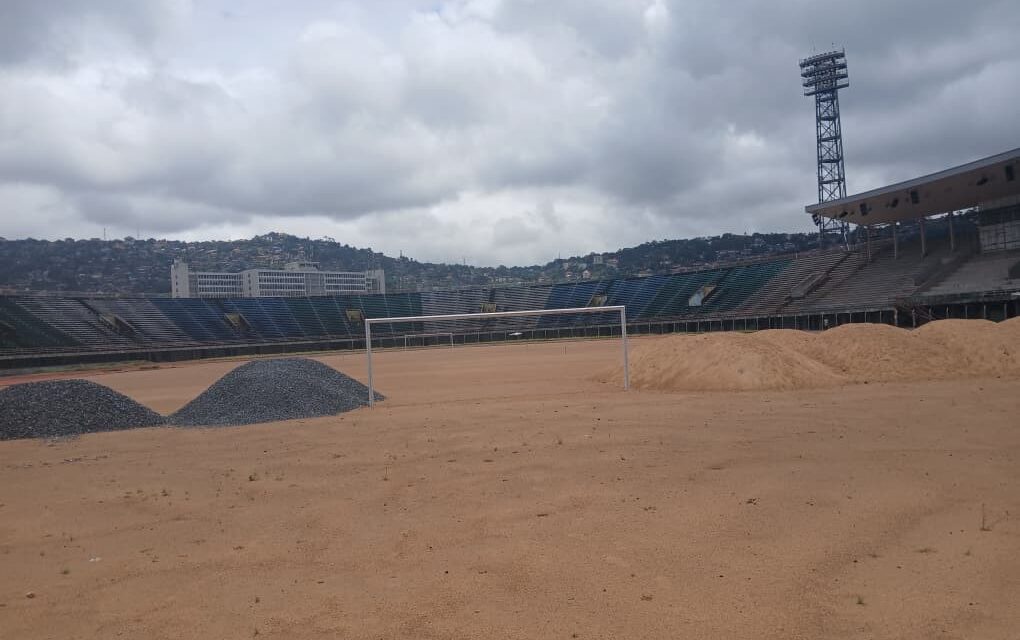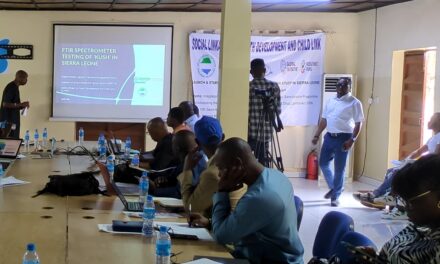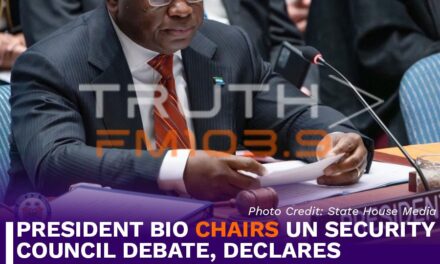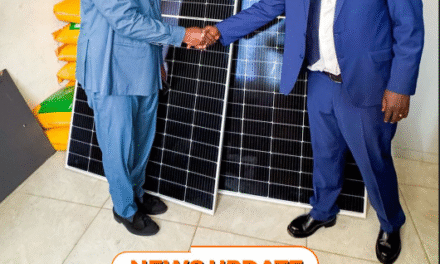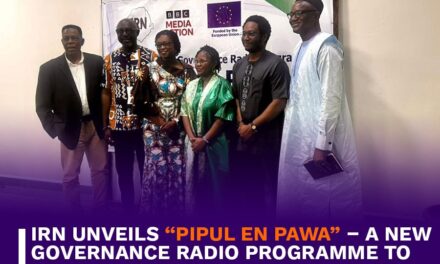By Nenneh Fofanah
Freetown, September 8th 2025- Once a towering symbol of national pride, the Siaka Stevens National Stadium in Freetown now stands as a monument to delay, neglect, and unanswered questions. Announced in February 2022, the government’s ambitious rehabilitation project funded by China and expected to last two years is now entering its third year with no clear end in sight. The result? Mounting public frustration and a growing chorus of questions: Who’s paying? Who benefits? When will it be completed? And what does this prolonged delay say about Sierra Leone’s development priorities?
To shed light on the situation, Truth Newspaper spoke with Alie Sesay, Director of Corporate Operations at the National Sports Authority (NSA), the agency overseeing the China Aid-funded renovation.
“This project is fully funded by the People’s Republic of China,” Sesay confirmed. “It’s a complete rehabilitation, main bowl, artificial turf for the practice field, a 1.5K-capacity pavilion, tennis, basketball, volleyball courts, and a swimming pool.” According to Sesay, the initial phase involved demolition and structural upgrades. But midway through, FIFA issued a ban on stadiums with concrete seating, requiring plastic seats for international matches.
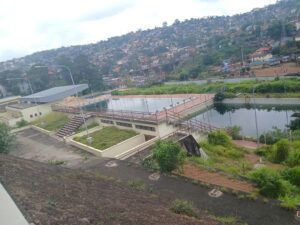
Swimming Pool Area
That shift prompted President Julius Maada Bio to personally request upgraded seating during a bilateral meeting with Chinese President Xi Jinping. The Chinese government agreed, but asked for an extension. “We held several meetings to ensure the seats met FIFA standards,” Sesay said. “Meanwhile, Sierra Leoneans were calling us daily. Playing matches abroad was costing the government heavily.”
Sesay emphasized that the Chinese manage every aspect of the project from financing to procurement. “Not even a penny lands in our hands,” he said. “They even pay the Sierra Leoneans working with them.” While most facilities are now complete including the courts and hostels the main bowl remains unfinished. This has sparked frustration among other sporting associations, who argue that football delays shouldn’t hold back access to completed areas.
A partial handover is expected in October, with discussions underway about future operations. “There’s talk of a Public-Private Partnership,” Sesay noted. “But initially, the government wants to run it for a year to assess revenue potential.” After completion, the Chinese will oversee a six-month maintenance and training period. The stadium, Sesay added, will be run as a business, with sports authorities required to pay for access.
Allan MJ Campbell, chairman of Regents Olympic FC and an international sports analyst, believes the delay has had a profound impact on football development. “It’s affected the game at all levels,” he said. “Players need to grow in an atmosphere where fans are present it builds pressure tolerance. But our national team has had to play home games abroad, without local support. That hurts their performance and costs the government.”
Campbell’s concerns echo those of many Sierra Leoneans who see the stadium not just as infrastructure, but as a cultural and economic asset. Its prolonged closure has disrupted local leagues, drained public funds, and dampened national morale.
Sesay concluded with a plea for patience. “Once completed, we’ll have a stadium we can all be proud of,” he said. “If there are no further changes, it should be ready by mid-next year.”
But pride alone won’t answer the deeper questions. As Sierra Leone waits, the stadium’s fate has become a litmus test for transparency, efficiency, and the country’s commitment to sports development.
